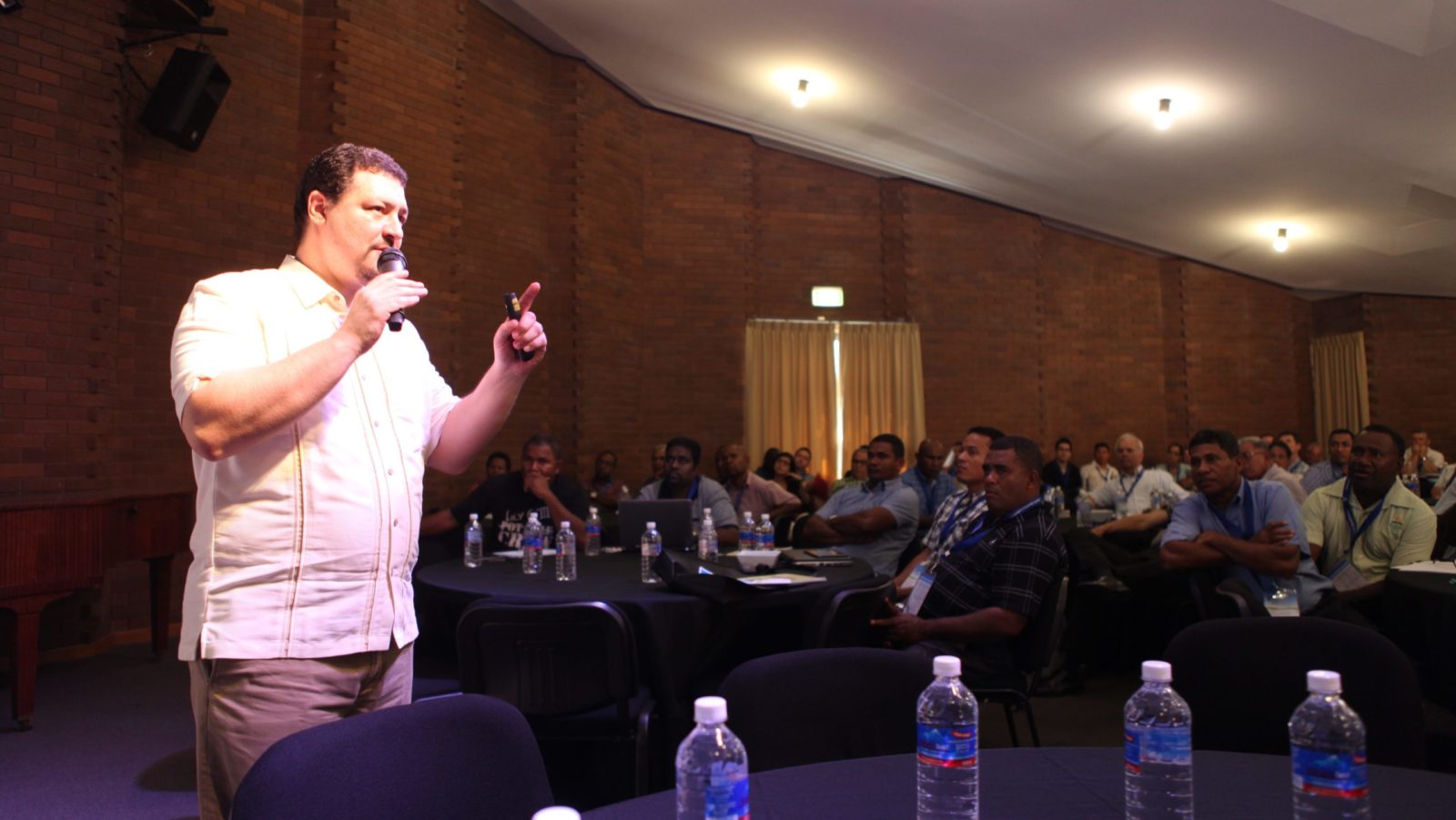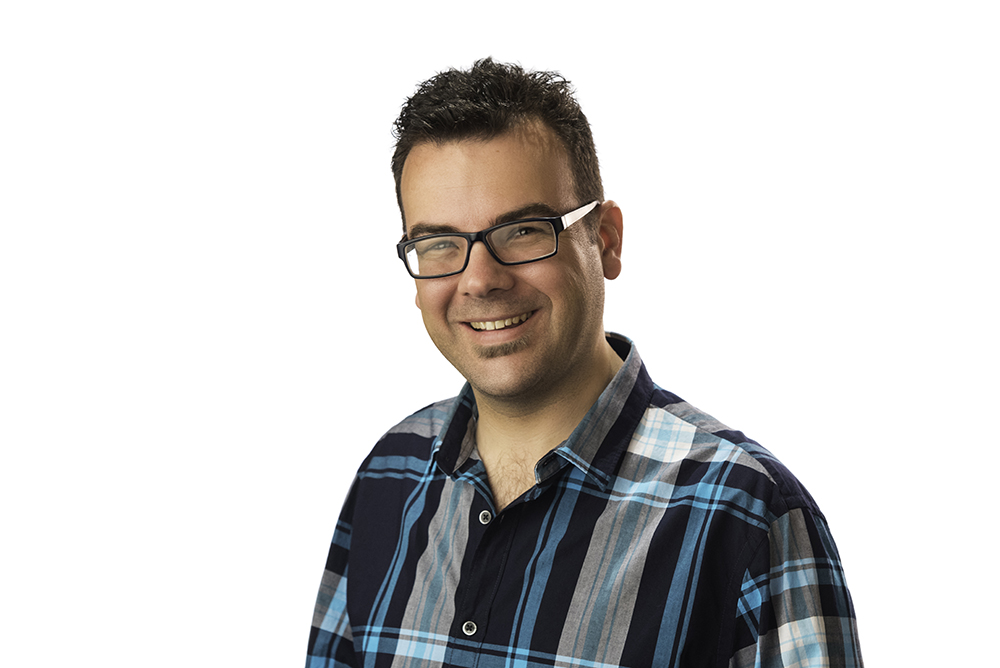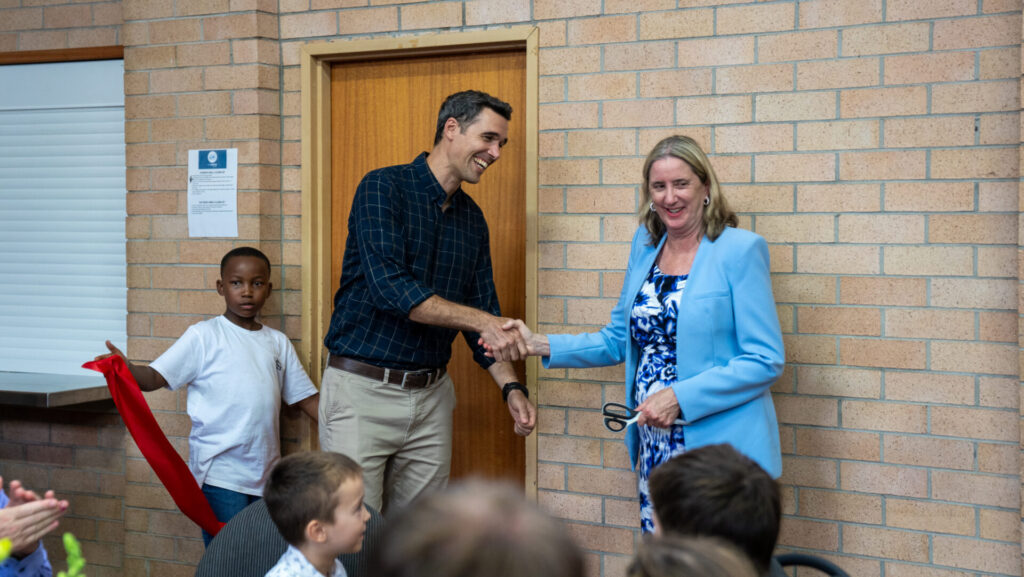A church planting conference, being held this week at the Avondale College of Higher Education in Cooranbong, NSW, is shaping up to be a heady mix of tough facts and inspirational solutions.
Yes, the Seventh-day Adventist Church has a problem in the South Pacific Division (SPD), said SPD president Pastor Glenn Townend in his opening address on Monday afternoon. In many parts of our region, Adventists are practically unknown. In Sydney, one of the most extreme examples, you’d need to gather a crowd of 500 people before you’d have a statistical chance of finding an Adventist. Just one.
“God is trusting us with resurrection power,” said Pastor Townend, riffing off the apostle Paul’s prayer in Ephesians 1. “It’s like we’ve been given a Formula 1 car and we’re just putt-putting along.”
Judging by the keen attention and hearty amens, the audience—mostly male but representing a broad spread of the SPD—seemed to resonate with what Pastor Townend was saying and relish the challenge he presented. Taking a leaf out of the One Project’s playbook, participants are seated around large round tables and spend time in discussion after each of the presentations from the front. Each day’s program also contains a number of workshops so that participants can delve deeper into their areas of interest.
“We’ve got just a bit over 200 people here; we had to turn a lot away,” said Dr Wayne Krause, the SPD’s church planting liaison and one of the conference’s key organisers. “We’re excited about the number of church members who are here—not just pastors and administrators—it’s around half church members. Because unless church members are planting churches we’re never going to advance the work. We do not have the resources. And it’s not biblically correct that only pastors plant churches. So we’re trying to encourage as many of our church members to see that they can either plant a church or be part of a church planting team.”
Dr Kleber Goncalves, one of four presenters from outside the SPD, made a stark comparison: “Jesus never said, ‘Go into the world and make church members.’ He said, ‘Go and make disciples.’ There’s a big difference.”
Dr Goncalves, who heads up the General Conference’s Centre for Secular and Postmodern Studies, highlighted the fundamental difference between the Greco-Roman notion of discipleship—intellectual and philosophical education—and the Jewish rabbinical tradition.
“In the Hebrew context, discipleship meant much more than just the sharing of cognitive information,” said Dr Goncalves. “Instead it’s about one’s life experience within the context of community—starting in the family and then to others. It indicated not only the acceptance of the master’s values and embracing his principles, but ultimately reproducing his ideas and beliefs in practical ways. This is a transformational process.”
“Multiplying Disciple Planting Churches” is the official title of the conference. Repeated communications coming from Pastor Townend and other Church leaders have made it abundantly clear that “discipleship” is a key theme for the SPD. But how does this fit with church planting? [pullquote]
“The reason we plant churches is that they’re the best place to grow disciples, to make disciples,” said Dr Krause. “New disciples go best into new communities.” So what’s so special about new church communities? Dr Krause explains: “It’s new. It’s something I can get involved in. The jobs aren’t already filled. The same person hasn’t held the eldership role for many years. New people, young people, are encouraged to get involved. There’s an excitement because no-one has told them it can’t be done.”
This week’s conference includes a number of church plant case studies to illustrate these points. The first two were inspiring examples of what can be achieved. Pastor Lloyd Grolimund related how the New Hope Adventist church in Sydney’s north-west has grown from “under a dozen” people to a congregation of 300 in less than two years using community service doorknocks, a quality worship experience and livestreamed/televised church services.
Pastor Faafetai Matai, from the Trans Pacific Union Mission in Fiji, recalled his visit to the Lau Valley Adventist church on the outskirts of Honiara, Solomon Islands. Church members there are successfully reaching people in the seven squatter settlements that surround their church building, establishing regular Bible studies, evangelistic video viewings, worship services and even a school. “They have no accreditation, no registration—they didn’t wait for permission; they just started a school! I don’t know who the principal is,” said Pastor Matai in mock outrage, drawing laughter from the audience.
Pastor Townend himself is no slouch when it comes to church planting. During his eight years as president of the Western Australian Conference 53 churches were planted—home churches, remote area churches, migrant churches, university churches. Although the sustainability of church plants can be an issue, the majority of these groups are still meeting.
“I think we’ve made the mistake of focusing on membership,” said Pastor Townend. “Being a member is important but being an ongoing disciple grows out of that. We’ve also focused on knowledge—knowing the fundamental beliefs—again, important, but actually living them and learning how to be a ‘loving and loveable Christian’ and involved in the different disciplines of being a disciple is what we’re focusing on. And it’s very biblical and many people are realising the need and seeing results by following the biblical plan.”
Download and watch sessions from the church planting conference using this Dropbox link.






